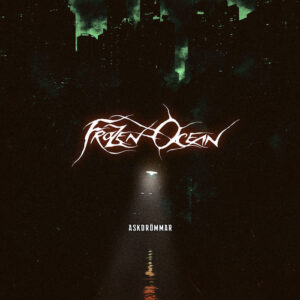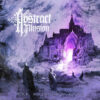Are We Scary? - By Jacob Dawson
April 30, 2015
Before I discovered the true magic behind our beloved, all-encompassing genre of Metal, I drifted between other types of music, not really knowing where I belonged. I viewed Metal from the outside, and all I saw was people with long hair and leather jackets banging their heads to a sound I never thought could be enjoyable. I never listened to it in depth to formulate this opinion; I simply built it through many small, brief encounters with the scene and its fans. It wasn't that I necessarily disliked the music; I just wasn't sure exactly where to start with it if I ever did want to get into it.
As it happens, it was basically an accident that I ever became interested and, like many fans, it was one song in particular that grabbed me. In my case, it was "Toxicity" by SYSTEM OF A DOWN. It was unlike anything I'd ever heard; I loved the lyrics, but I also loved how it was about so much more than just the words. I listened to it again and again, each time appreciating different parts of the music, becoming lost in the guitar riffs and just enjoying the feel of the sound. Eventually I explored other songs by the same artist, and from there spread my wings and branched out to many others. Before I knew it, in the space of only a couple of years, I was completely hooked. I can't ever imagine another genre of music becoming such an important part of me as Metal is today.
However, one thing I still haven't done is adopted the "image" many associate with Metal: I've never felt the need to grow out my hair, or wear a certain style of clothing, or otherwise advertise the fact that I am an avid fan of all things Metal. The way I've always seen it is that if the music is the main focus, what difference does it make what everyone's wearing? If I go to a concert, the people who are enjoying and appreciating the music the most are probably the ones in the middle of the moshpit, not the ones with the longest hair or the most chains hanging off their jeans. Once I'm throwing myself around to "Master Of Puppets" live, the people around me aren't questioning whether I'm a real fan just because I'm not wearing the right wristband.
I don't say this to degrade those who choose to adopt the style; I can see the appeal, really I can. If you're dressed in black from head to toe with your band t-shirt out in full force, then the next person you cross paths with who's doing the same immediately knows they share the same interests as you: there's a sense of community, of shared appreciation. It gives you a great ice-breaker to use in the pub or on the street.
My issue with this is that, to an outsider, it feels like an exclusive club: "Unless you're dressed the same as me, we can't be friends." This is not a conscious or intended message (usually, anyway), but it's the natural response from someone who sees the image as intimidating or, for want of a better word, frightening.
No other genre of music has such a strong, in-your-face image attached to it as ours. And the sad thing is that many outsiders are unable to look past this, seeing simply the violent appearance and hearing the often aggressive sound of the music and assuming that the entire genre is saturated with negativity, when the vast majority of it is anything but. Sure, it's sometimes used cathartically to release negative feelings, but it's never meant to create them, and that's the distinction that many don't recognise. If anything it provides a safe outlet for the musicians and fans to release their energy, and I would argue that people who avoid Metal as a whole are missing out in that respect.
A good example of this is a band everyone knows of, even if they have no interest in the scene: SLIPKNOT. The group are famous for their appearance, donning boiler suits and customised facemasks meant to reflect the darker sides of their personalities.
They have been blamed for the tragic suicides of young people in past headlines, in instances when they were the last played artist on the victim's iPod, or an album by them was found among their possessions. Luckily, the band make the best of this unfair finger-pointing, but it's not hard to see how they're such an easy target: they look scary, and they sound scary. They call their fans "Maggots", partly playing with the genre stereotype and partly because they know a decent number of fans actually enjoy the stigma, and are all too happy to conform to the public's expectations of them even if only for a sense of belonging and companionship with their fellows.
But while the individuals involved in cases like this are able to carry on with little or no change, the genre as a whole is affected. The public's image of us is shaken, and there's no easy way for us to show them any differently since they have no real interest in being proven wrong.
The other viewpoint to this argument is that one of Metal's defining qualities is its rebellious and untameable nature. Since its birth in the late 70s/early 80s, it has always been the subject of a lot of controversy and suspicion and in some ways, this has fed it and sustained it, allowing it to become what it is today: not just a style of music, but a lifestyle, encompassing those feelings of non-acceptance. Many see it as a form of escapism and solace, finding comfort in the warm embrace of the riff as they know that if no one else understands, the music always does.
Vice President of the Metal And Rock Society at Southampton Solent University and Music Promotion student Dave Bass, thinks that Metal has an increasingly popular place in society:
"!there're Metal and Rock pubs and clubs, alternative clothing stores which sell band t-shirts/hoodies, Rock and Metal magazines, and now even ASDA are jumping on the bandwagon and selling MOTORHEAD shirts."
However he also subscribes to the opinion that being unaccepted is part of the appeal and character of Metal.
"I like that metal is pretty underground on the grand scale of things, and not as big as Taylor Swift or Ed Sheeran because it has its unique fan base and image to maintain."
It's likely that even if Metal was played regularly on mainstream radio like other genres, and even if it was featured in mainstream television and other media, there are musicians and fans who would ramp up the taboo-factor just to stay rebellious. Being defiant and breaking the rules is part of Metal's DNA, and that will never change; it's the stubborn, misbehaving child that does its best to annoy everyone but still manages to be loveable, and it's our job to make sure it maintains that quality. If you do that by donning the dark clothes and brooding character then fine, but if you prefer to simply enjoy the music in your own way, that is equally valid and you are still part of the same loving, dysfunctional family.
Source:
More results...





















